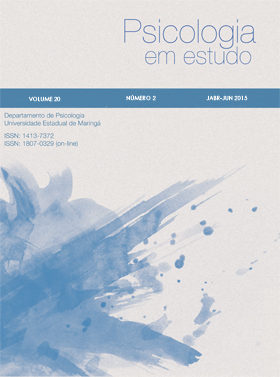O PEDIATRA E SUA FUNÇÃO APOSTÓLICA: PERCEPÇÕES DE MÉDICOS RESIDENTES SOBRE SUAS PRÁTICAS
Resumo
Este estudo é o resultado de um trabalho pedagógico, realizado com médicos residentes em pediatria em um hospital público no Rio de Janeiro. Durante um mês os residentes se encontraram diariamente com um supervisor para uma conversa sobre as suas consultas ambulatoriais. Os sentimentos que esses atendimentos despertavam nos médicos eram trazidos para os encontros. O foco da consulta era a relação médico-paciente e os padrões defensivos dos médicos. O estudo buscou apreender as estratégias subjetivas, utilizadas pelos médicos pediatras em formação para enfrentar a sua prática clínica cotidiana. Oito residentes do primeiro ano de pediatria foram entrevistados com foco nas questões relacionadas à puericultura. Seguiu-se o Método de Explicitação do Discurso Subjacente (MEDS) no campo da pesquisa qualitativa em que as entrevistas são realizadas com uma mescla de perguntas abertas e outras específicas. Observou-se que o zelo apostólico, ou seja, os padrões defensivos dos profissionais, tal como formulado por Michael Balint, se manifesta como uma exigência acentuada sobre as mães, como uma dificuldade de conhecer a dinâmica da família. É possível que esses comportamentos estejam relacionados à excessiva idealização da mãe e da criança, como demonstrou a análise das narrativas. O trabalho direcionado para os conceitos idealizados sobre as mães e as crianças pode ajudar no arrefecimento do zelo apostólico nos profissionais em formação.
Downloads
As opiniões emitidas, são de exclusiva responsabilidade do(s) autor(es). Ao submeterem o manuscrito ao Conselho Editorial de Psicologia em Estudo, o(s) autor(es) assume(m) a responsabilidade de não ter previamente publicado ou submetido o mesmo manuscrito por outro periódico. Em caso de autoria múltipla, o manuscrito deve vir acompanhado de autorização assinada por todos os autores. Artigos aceitos para publicação passam a ser propriedade da revista, podendo ser remixados e reaproveitados conforme prevê a licença Creative Commons CC-BY.
The opinions expressed are the sole responsibility of the author (s). When submitting the manuscript to the Editorial Board of Study Psychology, the author (s) assumes responsibility for not having previously published or submitted the same manuscript by another journal. In case of multiple authorship, the manuscript must be accompanied by an authorization signed by all authors. Articles accepted for publication become the property of the journal, and can be remixed and reused as provided for in theby a license Creative Commons CC-BY.
















